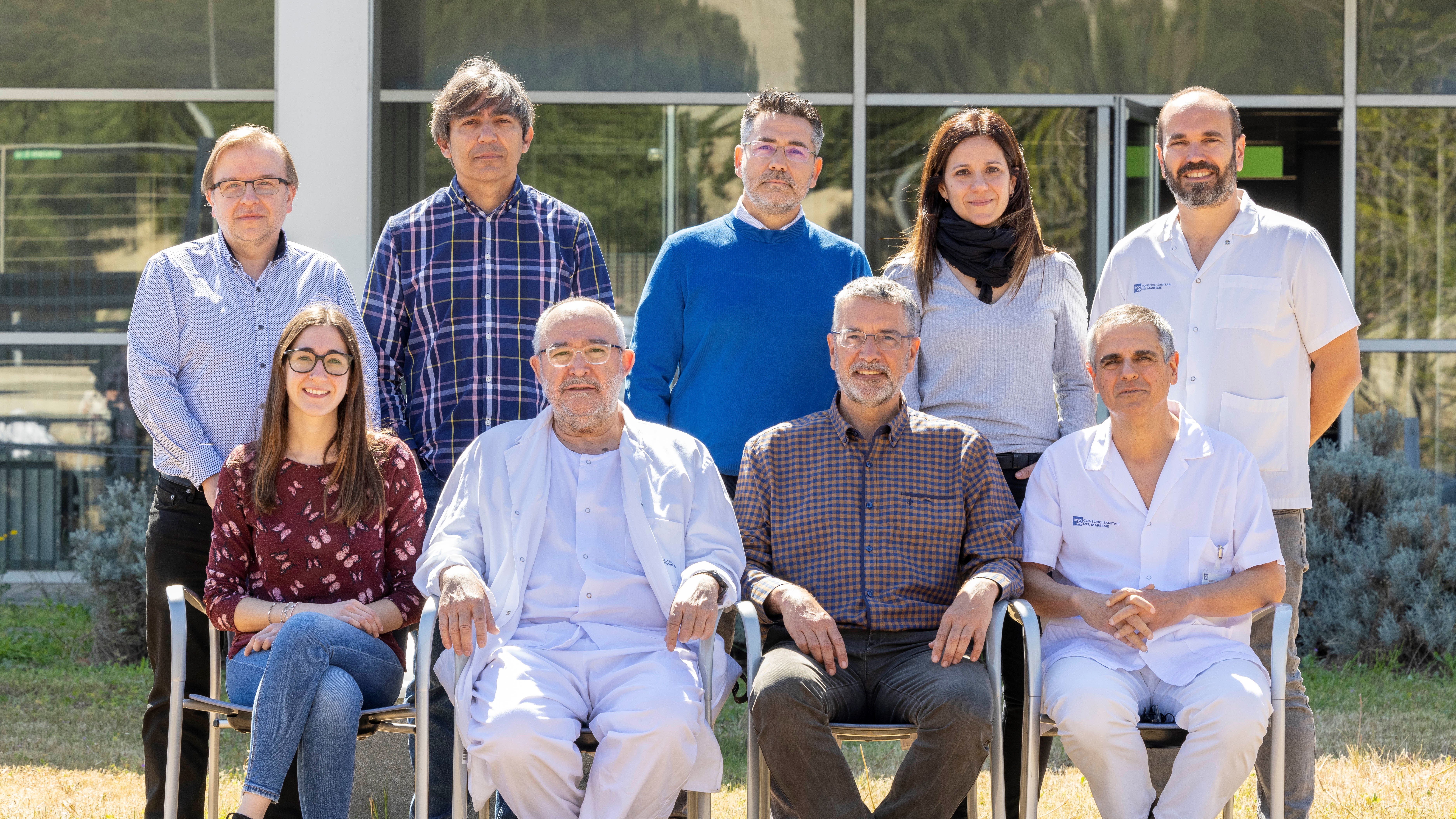About
This is a research group accredited by AGAUR (2021 SGR-01272), which has the mission to generate useful scientific knowledge for the prevention of sarcopenia, frailty and functional decline in aged population. Fourteen people (5 doctors) compose it, of whom half are women.
In the last 5 years, the group has obtained 6 competitive grants with a cumulative amount of €700,000 and has published 62 scientific articles (30% Q1) with 137 impact factor. Principal investigator Dr Serra Prat has an h-index=39, an i10 index of 101, and an average of 46 citations/article. The group has participated in two European projects (GRACE and Mid Frail) and has collaborated with numerous research groups. The GRESFD has generated 11 doctoral theses and six more are currently underway.
Its main research lines are the evaluation of the causes and consequences of frailty, the assessment of effectiveness of interventions for its prevention and the development of innovative tools for its diagnosis and treatment.
Keywords: Ageing, sarcopenia, muscle mass, muscle strength, frailty, functional capacity, epidemiology, risk factors.

Group Leader
Research lines
Fragility is a clinical syndrome with multiple causes, which are neither well known or understood, characterised by a loss of muscular power and physiological reserves that lead to a situation of vulnerability and increased risk of suffering disability, health complications, dependence, institutionalization and death from external aggressions.
It has an occurrence of about 10% in the population over 65, greater prevalence in women and increases sharply over 89 years. Fragile individuals consume more health and social resources. Experts agree that fragility is a dynamic condition that is potentially reversible if it is detected and treated early with exercise, correct nutrition and protein supplement and control of underlying illnesses along with a reduction in polypharmacy. Studies of the causes, prevention and or treatment of the fragile syndrome must necessarily be multidisciplinary and include professionals from many specialisations.
Evaluation of the pathophysiology and risk factors of sarcopenia, frailty and functional decline in the elderly
With special emphasis on the study of:
- Nutritional status and hydration status and its impact on muscle function.
- Biomarkers of sarcopenia and frailty, such as hematological parameters (Hb, lymphocytes), ions (Na), osmolytes (urea, glucose), plasma and urinary osmolarity, hormones (copeptin), metabolites (3-Methyl-Histidine), inflammatory markers ( PCR, IL-6), etc.
- Drugs, polypharmacy and appropriate use of medication in the elderly.
- Physical activity in the elderly.
- Social determinants such as social isolation, level of education, income or home conditions.
Evaluation of the effectiveness and safety of multimodal interventions aimed at preventing and/or reversing frailty and disability in the elderly
Assessment of the impact of frailty on the health and quality of life and assessment of the economic impact of frailty
Development and validation of electronic and automatic instruments for mass screening of frailty and/or disability to generate information at population level useful for health planning and management
Active projects
Estudio básico-clínico de las causas de la deshidratación intracelular del músculo y sus consecuencias funcionales en el anciano
Funding agency: Proyectos de I+D+I en Salud 2019, Instituto de Salut Carlos III (ISCIII)
Agency code: PI19/00500
Mataró-Maresme: ecosistema d'innovació per a ciutats cuidadores
Funding agency: Proyectos de I+D+I en Salud 2019, Instituto de Salut Carlos III (ISCIII)
Agency code: PR15-020211
Operació 4 (Diagnòstic i tractament innovador de la fragilitat i la disfàgia orofaríngia: per un envelliment saludable i autònom actuacions), actuació 1 (electronic screening index of frailty: e-SIF) i actuació 2 (Equip de suport per a la prevenció i atenció integral a la fragilitat: ESPAI-Fragilitat)
Importància de l'aigua intracel·lular en la funció muscular i el risc de fragilitat en les persones majors de 70 anys
Funding agency: Beca "Golçal Calvo i Queraltó" per a recerca en atenció primària de l'Acadèmia de ciències mèdiques de Catalunya i Balears (filial del Maresme) 2019
La deshidratación y los mecanismos fisiológicos adaptativos de conservación del agua como factores de riesgo de resistencia anabólica en ancianos
Funding agency: Proyectos de I+D+I en Salud 2022, Instituto de Salut Carlos III (ISCIII)
Agency code: PI22-327
Scientific publications
Oyon J, Serra-Prat M, Limon E, Ferrer M, Pastor N, Palomera E, Burdoy E. Depressive symptom severity is a major risk factor for frailty in community-dwelling older adults with depression. A prospective study. Fam Pract. 2022 Sep 24;39(5):875-882. DOI: 10.1093/fampra/cmab174.
Marin S, Serra-Prat M, Ortega O, Clavé P. Economic evaluations of health care interventions in oropharyngeal dysphagia after stroke: protocol for a systematic review. Syst Rev. 2022 May 14;11(1):92. DOI: 10.1186/s13643-022-01969-6.
Serra-Prat M, Lavado À, Cabré M, Burdoy E, Palomera E, Papiol M, Parera JM. Development and validation of the electronic screening index of frailty. Age Ageing. 2022 Jul 1;51(7):afac161. DOI: 10.1093/ageing/afac161.
Pérez-Cordón L, Sánchez A, Marin S, Force L, Serra-Prat M, Palomera E, Campins L. Real-world effectiveness and durability of dual antiretroviral therapy in HIV-infected patients. Eur J Hosp Pharm. 2022 Jul 26:ejhpharm-2022-003277. DOI: 10.1136/ejhpharm-2022-003277.
Rodríguez F, Faixó M, Ardila M, Boixeda R, Serra-Prat M, Palomera E, Almirall J. La mala salud bucodental y la fragilidad son factores de riesgo de neumonía adquirida a la comunidad. Estudio de casos y controles. Atención Primaria Práctica. 2022 Oct;4(4):100149. DOI: 10.1016/j.appr.2022.100149
Serra-Prat M, Lorenzo I, Perez L, Campins L, Palomera E, Ruiz A, Cabré M, Pleguezuelos E. Peripheral Resistance to Arginine Vasopressin and Its Relationship with Plasma Osmolarity in Aged Population. Journal of Family Medicine. 2022 Aug 11;9(5):1305. DOI: 10.26420/jfammed.2022.1305
Pleguezuelos E, Del Carmen A, Moreno E, Ortega P, Robles A, Serra-Prat M, Miravitlles M, Yebenes JC, Garnacho-Castaño MV. Impaired pulmonary and muscle function during moderate exercise in female patients recovered from SARS-CoV-2. Sci Rep. 2022 Dec 4;12(1):20943. DOI: 10.1038/s41598-022-24941-9.
Contact
Mateu Serra Prat
(+34) 93 741 77 30

